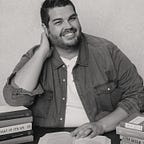Unmasking My Heroes: The Power of Community and Representation in Comic Books
As I’ve previously mentioned, I’ve recently rediscovered my love for comic books. For many years, I was made to feel ashamed of my love of video games and comic books. I was told to eschew nerd culture, to stick to the status quo, to “just be normal.” And I took those commands to heart.
I was, after all, the weird kid who had grown up in a small, conservative town in east Texas. I already stuck out like a sore thumb, what with my love of books and anime. (Today, one of my schoolmates is a relatively famous cosplayer, so times have surely changed.)
For many years, I followed the advice of those around me; I choked down and repressed the things I loved. I beat out of myself my love of video games; I missed entire console generations for the sake of trying to fit in. I missed the introduction of incredible comic book characters who have wonderfully complex storylines. And when I finally graduated college and came into adulthood, I felt aimless. I had devoted so much of my life to being the person society said I needed to be — out of self-defense and a need to succeed — that I lost sight of who I was.
It wasn’t until I had settled back into my nerd-culture roots, freely and openly expressing myself as the lover of comic books, video games, and anime that I had always been, that I felt truly connected to the person I’m meant to be. Since then, I’ve found a wonderful community of people who just get me. That’s not to say that every comic book reader is nice, or that I find common ground with every gamer I met, but I definitely enjoy the company of this group of people in general.
The thing is, nothing about my love of comic books or video games, or anything in nerd culture is illegal or immoral, but I still hid it out of self-preservation. However, members of the LGBTQ+ community are forced into hiding because of the continued attacks they receive from politicians, peers, governmental agencies, and society at large. What I did merely to save some social currency, others do for survival.
But in recent years, in the iconic world of capes and cowls, of heroes and villains, a revolution has been happening quietly, yet profoundly. The revolution of LGBTQ+ representation. A revolution that’s taking place on the glossy pages of comic books, especially in the universe of DC Comics. DC, over the years, has been commendably proactive in portraying LGBTQ+ characters in their timeless tales, a journey that has culminated in the evocative DC Pride covers.
In these vibrant, intricate covers, the colors of Pride proclaim equality, defying and redefining the normative narratives. The covers, with their vivid hues, are not just eye-catching artistic expressions, but powerful symbols of acceptance, validation, and empowerment.
The importance of this representation is immeasurable, and let me explain why. Comic books are more than just panels of action sequences and speech bubbles. They are cultural touchstones. They are mirrors held up to society; they reflect the times we live in and the morals we hold dear. So, when a young reader opens a comic book and sees a character they can relate to, it’s as if a lifeline has been thrown to them. They know that they are not alone, that they are seen, that they are heard, and most importantly, that they matter. Their existence is validated.
Consider the emotional resonance of characters like Batwoman, a powerful woman, and an out lesbian. Or Midnighter and Apollo, the formidable gay couple. Or Aerie, a non-binary hero who’s captured the hearts of many. They are all heroes; their narratives are interwoven into the tapestry of these epic stories. Their mere presence is a testament to the fact that heroism is not a privilege reserved for any particular sexuality or gender. Their struggles, their triumphs, their tales of resilience are just as integral to the grand narrative of good versus evil as any other.
When we talk about representation, we’re not merely talking about token appearances or throwing in a rainbow flag for good measure. We’re talking about giving these characters space to exist, to flourish, to be heroes. We’re talking about crafting complex narratives around their lives that are as much about their identities as they are about their superpowers.
That’s why it matters so much when comic book creators take the time to understand, to empathize, and to celebrate these characters for who they are. It’s in these beautifully inked pages, in the panels of heroic acts and noble sacrifices, that readers find a part of themselves.
Representation in comic books, particularly LGBTQ+ representation, is not just a matter of diversity — it’s about authenticity. It’s about acknowledging that superheroes come in all forms, and they always have. It’s about unmasking the truth that has always been there — we’re all heroes, no matter who we love or how we identify. And the more we feel seen in these stories, the more we see ourselves as the heroes we truly are.
Keep reading, keep exploring, keep being you in this vast universe of characters and stories. Your heroes are out there, and so are you.
And to DC — from this writer, personally — thank you for heroes like Tim Drake and Jon Kent. Thank you for beautiful covers, for amazing stories, and for incredible characters. Thank you for making sure so many feel safe and seen. Thank you for community.
